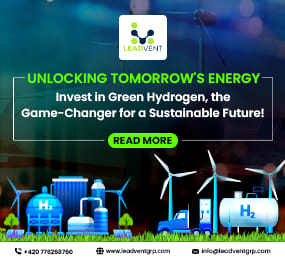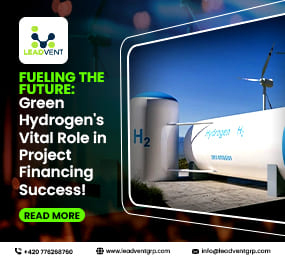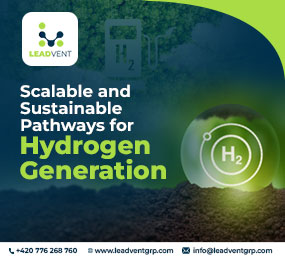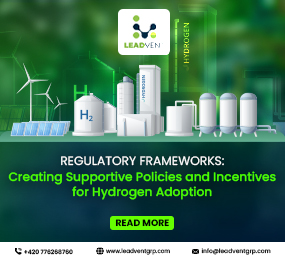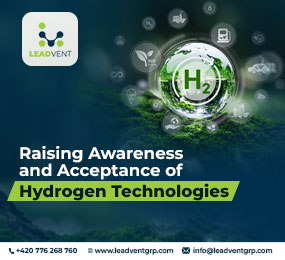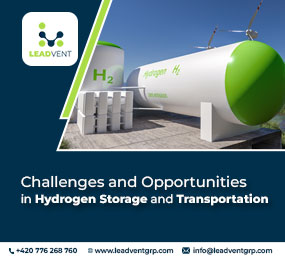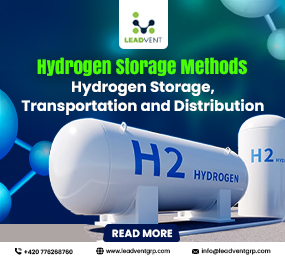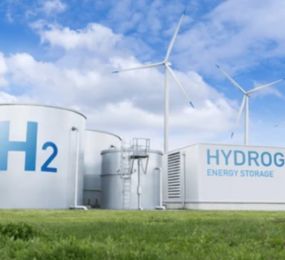The global battle against climate change has brought extraordinary attention to sustainable energy solutions. This element is emerging as a beacon of hope for industries. Especially for those who are seeking to reduce their carbon footprint dramatically.
Hydrogen stands out as a transformative technology. It is because the world grapples with the urgent need to reduce greenhouse gas emissions. This element is capable of revolutionizing energy intensive sectors and driving meaningful environmental change.
Central European Hydrogen represents not just an alternative energy source but a comprehensive pathway. This is to reimagine how we produce and consume with thinking about energy across multiple sectors.
Understanding Hydrogen And Its Element
Central European Hydrogen, the most abundant element in the universe, offers a unique set of characteristics that position it as a potentially revolutionary energy carrier:
Molecular Composition
A simple element consisting of one proton and one electron
Energy Potential
Extremely high energy density by weight
Versatility
It can be produced, transformed, and utilized across multiple industrial applications
Environmental Compatibility
Produces only water vapor when used in fuel cells
Key Statistics on Hydrogen's Impact
- The global hydrogen market is projected to reach $155 billion by 2026
- Potential to reduce industrial carbon emissions by up to 40% by 2030
- Current hydrogen production could prevent approximately 830 million tonnes of CO2 emissions annually.
Hydrogen Production Methodologies
The hydrogen production ecosystem encompasses several critical methodologies:
Green Hydrogen
- Produced using renewable electricity through water electrolysis
- Zero direct carbon emissions
- Highest environmental compatibility
- Currently the most promising long-term solution
Blue Hydrogen
- Produced from natural gas with carbon capture and storage (CCS)
- Reduced carbon emissions compared to traditional fossil fuel methods
- Serves as a transitional technology
Grey Hydrogen
- Traditional production methods using fossil fuel processes
- Highest carbon emissions
- Increasingly viewed as unsustainable
Current Industrial Emission Challenges
The global industrial landscape presents both significant challenges and unprecedented opportunities:
- Total Industrial Emissions are approximately 39% of global carbon dioxide emissions
- Projected Hydrogen market growth is expected to reach $154 billion by 2030
- Job Creation Potential is up to 3 million jobs globally by 2050 through the hydrogen economy
- Emission Reduction Potential capacity is to reduce CO2 emissions by 830 million tonnes annually
- Global Energy Demand that Hydrogen could meet 18% of total energy demand by 2050
Cutting-Edge Technological Developments
Recent years have witnessed remarkable advancements in hydrogen technology:
Advanced Electrolysis Technologies
- Improved efficiency in water splitting
- Reduced energy consumption
- Enhanced membrane technologies
Renewable Energy Integration
- Direct coupling of solar and wind energy with hydrogen production
- Improved energy storage capabilities
- Increased grid stability through hydrogen buffering
Transformative Case Studies: Hydrogen in Real-World Applications
Steel Manufacturing: ArcelorMittal's Hydrogen Innovation
Location: Hamburg, Germany
Key Achievements:
- 95% carbon emission reduction in pilot steel production
- Successful implementation of hydrogen-based direct reduced iron (DRI) technology
- Projected annual carbon reduction of 800,000 tonnes
- Demonstrated economic and technological feasibility of large-scale hydrogen implementation.
Hyundai NEXO: Fuel Cell Technological Breakthrough
Vehicle Specifications:
- Zero tailpipe emissions
- 595-kilometer driving range
- Comparable refueling time to traditional combustion engines
- Represents a paradigm shift in sustainable transportation technology.
The Hydrogen Decarbonization Summit: A Landmark Global Event
The World Hydrogen Summit 2025 emerges as a critical platform for global innovation. It brings together the most influential minds in sustainable energy technology.
Comprehensive Event Details
Duration
Two intensive days of knowledge exchange
Format
- Interactive expert sessions
- Advanced panel discussions
- Strategic networking opportunities
Participation
Exclusive, limited high-level attendance ensures meaningful engagement.
Unparalleled Attendee Benefits
Advanced Project Financing Insights
- Direct engagement with global investors
- Comprehensive funding mechanism exploration
- Strategic investment approach development
- Understanding complex financial models for hydrogen infrastructure.
Sophisticated Market Intelligence
- Presentation of cutting-edge technological advancements
- Comprehensive global hydrogen market trend analysis
- Competitive landscape comprehensive exploration
- Strategic insights from international market leaders.
Public Awareness and Acceptance Strategies
- Advanced communication methodologies
- A nuanced approach to addressing public concerns
- Building sophisticated community understanding
- Developing transparent engagement strategies.
Strategic Networking Platform
- Unprecedented access to global thought leaders
- Cross-sector innovation dialogue
- Potential collaborative partnership development
- Knowledge exchange across international boundaries
World-Class Speaker Lineup
The summit will feature presentations from:
- Global clean energy company Chief Executive Officers
- Leading international research institution directors
- Prominent government policy innovation experts
- Sustainability and technological transformation thought leaders.
Conclusion: Pioneering a Sustainable Technological Future
Hydrogen represents more than an alternative energy source. It embodies a complete solution for global industrial decarbonization.
The upcoming World Hydrogen Summit 2025 transcends a traditional conference. It emerges as a critical milestone in humanity's sustainable journey with a technologically advanced future.
Frequently Asked Questions
1) Is Hydrogen Truly a Sustainable Energy Solution?
Hydrogen, especially when produced through renewable processes, represents a highly sustainable energy alternative. Its versatility, zero-emission characteristics, and potential for comprehensive decarbonization make it a promising solution for global energy transformation.
2) Why is Hydrogen Important for Decarbonization?
Hydrogen offers a zero-emission alternative for industrial processes, transportation, and energy production, helping reduce the global carbon footprint significantly.
3) How Can Industries Use Hydrogen?
Industries can replace fossil fuels with hydrogen in manufacturing, transportation, and energy generation, creating sustainable and environmentally friendly production processes.
4) Which industrial sectors are the most promising early adopters of hydrogen technology?
The steel industry, chemical manufacturing (especially ammonia production), and heavy-duty transport are considered the most promising early adopters.
These sectors already use hydrogen or have processes. It can be readily adapted to hydrogen use, making them natural starting points for broader hydrogen adoption.
5) What are the main challenges in scaling up clean hydrogen adoption?
The primary challenges include:
- High production costs compared to fossil fuels
- Lack of infrastructure for transport and storage
- Need for massive renewable energy
- Capacity for green hydrogen production,
- The necessity for supportive policy frameworks and investment to drive market development.


